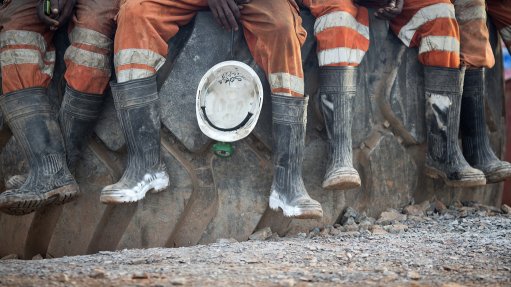
MAKING MOST OF MINING The Ghana Chamber of Mines seeks to enhance the mining sector's socioeconomic contributions to the country
Ghana is proving the value of a collaborative approach, says International Council on Mining and Metals (ICMM) CEO Tom Butler.
“When stakeholders work together, the mining industry can make an important contribution to broad-based, inclusive development.”
His comments accompnay the release of a report in August 2015, compiled by the ICMM together with the Ghana Chamber of Mines, providing an in-depth economic analysis of the country’s gold mining industry in a bid to enhance mining’s socioeconomic contributions to the country.
This is the first step in a process that brings together mining companies, government and diverse parts of society to plan how to increase the jobs and revenues that mining can create, directly and indirectly, in Ghana.
TheICMM, which operates at international level, has facilitated the bringing together of these vari- ous stakeholders in Ghana to discuss a way forward; however, the responsibility now lies with the Chamber of Mines to progress any actions arising out of the report.
“The most important aspect of this initiative is the opportunity to bring together diverse representatives to discuss potential partnerships to progress the priority actions,” says Ghana Chamber of Mines CEO Sulemanu Koney.
The report, undertaken by specialised consultancy Steward Redqueen and the African Centre for Economic Transformation, focuses on the socioeconomic impact of the large-scale gold mining sector in Ghana from 2010 to 2022 and provides robust data on the industry as a basis for informed discussion, policymaking and operational planning.
Based on a sample of seven mines, namely Adamus Resources’ Nzema mine, Kinross Gold’s Chirano gold mine, Gold Fields’ Damang and Tarkwa mines, Golden Star’s Wassa mine and Newmont’s Ahafo and Akyem mines, the report states that these mines collectively employ 110 000 people directly and indirectly annually. Further, for every mining company job, 15 indirect jobs are supported, $1.60 is supplied to the Ghanaian government for every $1 of mining company profit and, for every $1-million increase in local procurement, 105 jobs are supported.